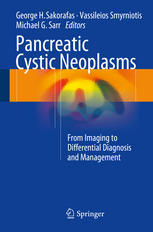

Most ebook files are in PDF format, so you can easily read them using various software such as Foxit Reader or directly on the Google Chrome browser.
Some ebook files are released by publishers in other formats such as .awz, .mobi, .epub, .fb2, etc. You may need to install specific software to read these formats on mobile/PC, such as Calibre.
Please read the tutorial at this link: https://ebookbell.com/faq
We offer FREE conversion to the popular formats you request; however, this may take some time. Therefore, right after payment, please email us, and we will try to provide the service as quickly as possible.
For some exceptional file formats or broken links (if any), please refrain from opening any disputes. Instead, email us first, and we will try to assist within a maximum of 6 hours.
EbookBell Team

4.8
14 reviewsThis book provides a thorough overview of the detection of PCNs using modern imaging techniques and a clear guide to the recognition of the different subtypes of PCN based on their radiologic and histopathologic features. This volume will serve as an excellent aid to the selection of optimal therapeutic strategies based on preoperative diagnosis. A further important feature is the emphasis placed on radiologic, clinical, and surgical correlations.
Pancreatic cystic neoplasms (PCNs) have been increasingly recognized during the past decade, mainly because of the widespread use of modern imaging modalities for the investigation of often unrelated abdominal symptoms. The three most common subtypes of PCN are serous cystic neoplasms, mucinous cystic neoplasms, and intraductal papillary mucinous neoplasms. These subtypes have distinct radiologic and histopathological features, and their biological behavior differs greatly. Accurate preoperative diagnosis is of prime importance in selecting the optimal therapeutic strategy: while serous cystic neoplasms are almost always benign, and may be treated conservatively, mucinous cystic neoplasms and intraductal papillary mucinous neoplasms have malignant potential, warranting an aggressive surgical approach, i.e., pancreatectomy. Pancreatic Cystic Neoplasms will be of great interest to surgeons, gastroenterologists, radiologists, oncologists, and pathologists, and also to internists and residents in these specialties.